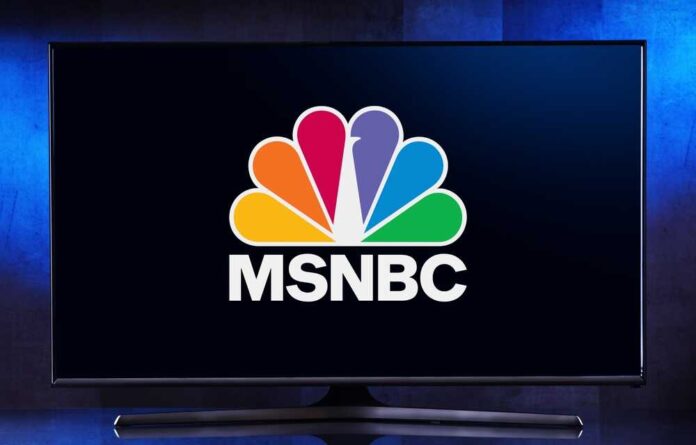In a surprising move, MSNBC host Rachel Maddow made headlines last night when she announced that the network would not be airing former President Donald Trump’s victory speech live. Maddow, along with her co-anchors Chris Hayes, Joy Reid, Ari Melber, and Steve Kornacki, was co-anchoring MSNBC’s coverage of the Iowa Caucuses when Trump’s victory was called within 30 minutes of the race.
As the cable personalities engaged in banter about politics and eagerly awaited victory and concession speeches, Maddow interrupted the coverage to explain the network’s decision. She stated that MSNBC had “revisited” their policy of not broadcasting Trump’s speeches live and had ultimately decided to stick to it.
Maddow acknowledged that the decision was not made out of spite or delight but rather out of a commitment to journalistic integrity. She emphasized that there is a cost to a news organization for knowingly broadcasting false information and that MSNBC takes this seriously. The network believes avoiding giving an unfiltered platform to remarks that may contain falsehoods is essential.
Although Trump’s victory speech was not aired live, Maddow assured viewers that MSNBC would monitor his remarks and provide updates on significant developments or noteworthy statements. This approach allows the network to maintain its commitment to informing the public while upholding its responsibility to report accurate and truthful information.
The decision by MSNBC to withhold live coverage of Trump’s victory speech reflects a broader debate within the media industry about how to handle the statements of public figures who have a history of spreading false or misleading information. Some argue that denying these individuals a live platform is necessary to prevent the dissemination of falsehoods. In contrast, others contend that it is essential to provide unfiltered coverage, allowing viewers to form their judgments.
Regardless of one’s stance on the issue, Maddow’s interruption and explanation during the Iowa Caucus coverage have sparked a larger conversation about the role of news organizations in shaping public discourse. It raises questions about the responsibilities of journalists in an era where misinformation is rampant and the media’s credibility is continuously scrutinized.
As the 2024 election season unfolds, it will be interesting to see how other news outlets approach the coverage of politicians with a history of spreading falsehoods. The decision made by MSNBC may catalyze a broader reevaluation of media practices and the pursuit of truth in an increasingly complex and polarized information landscape.














